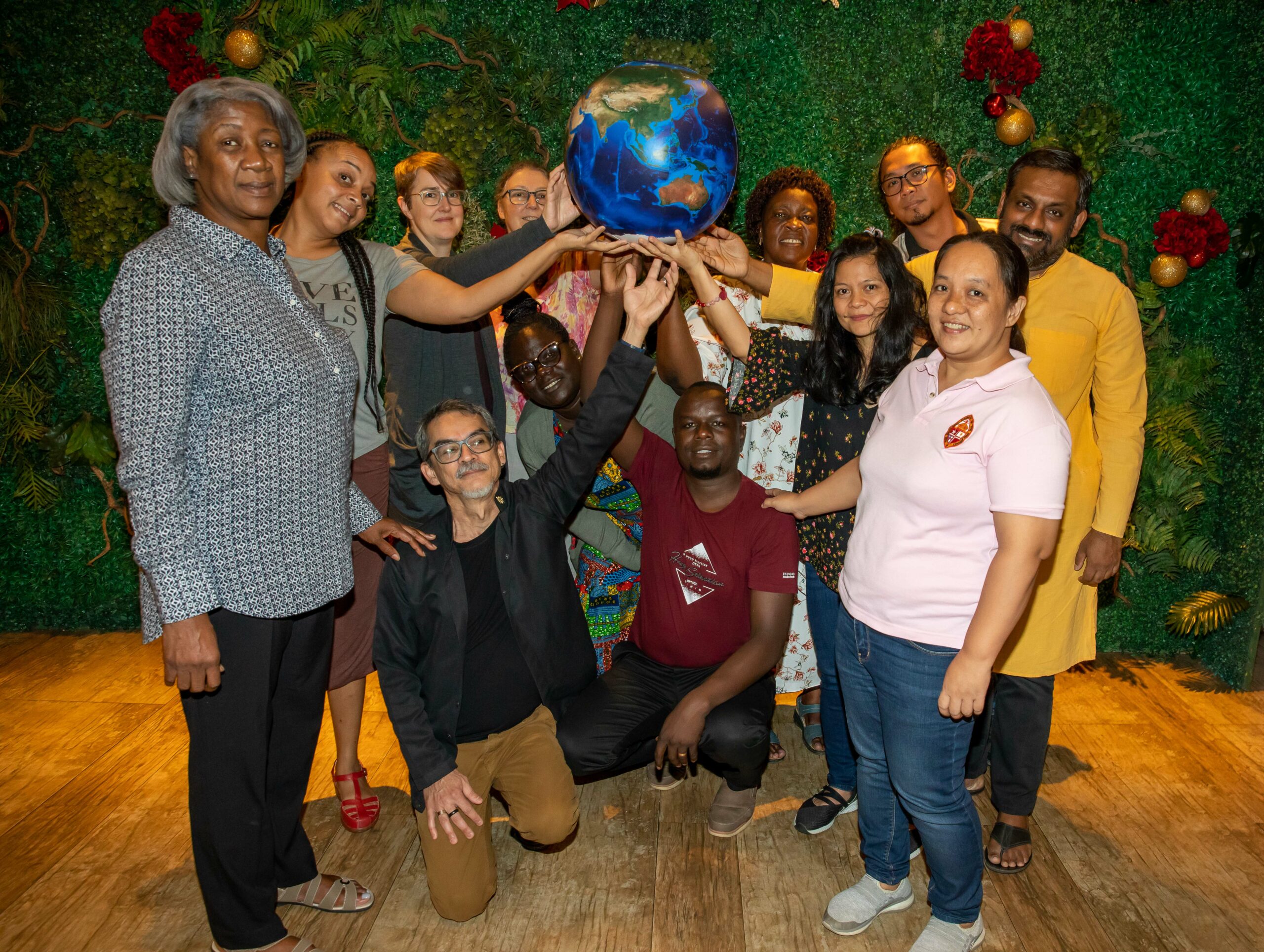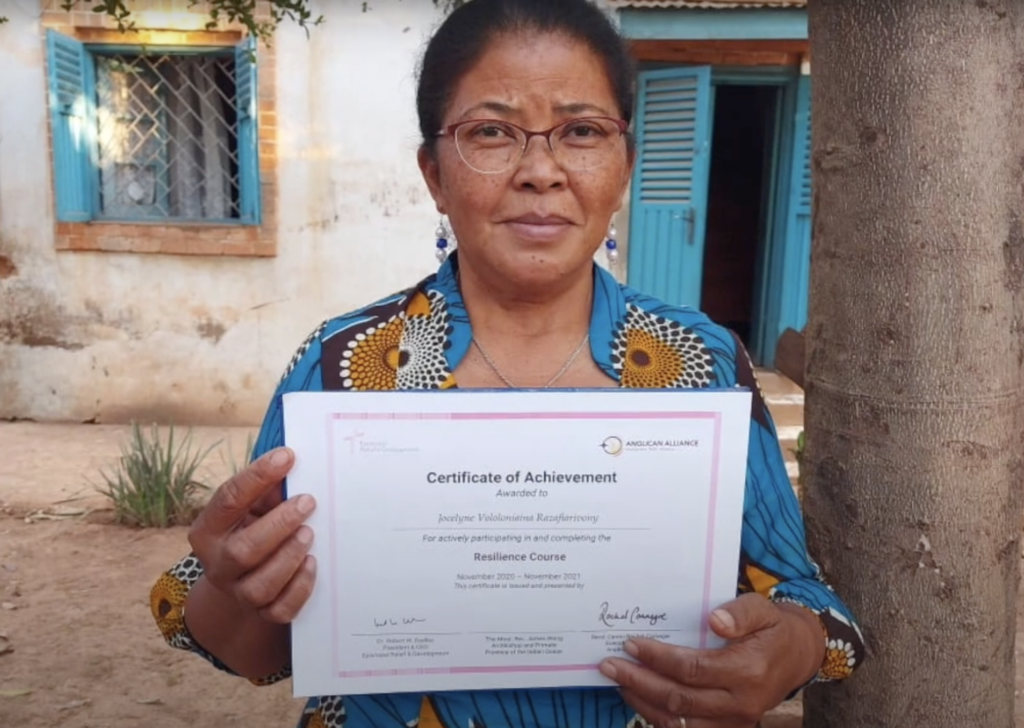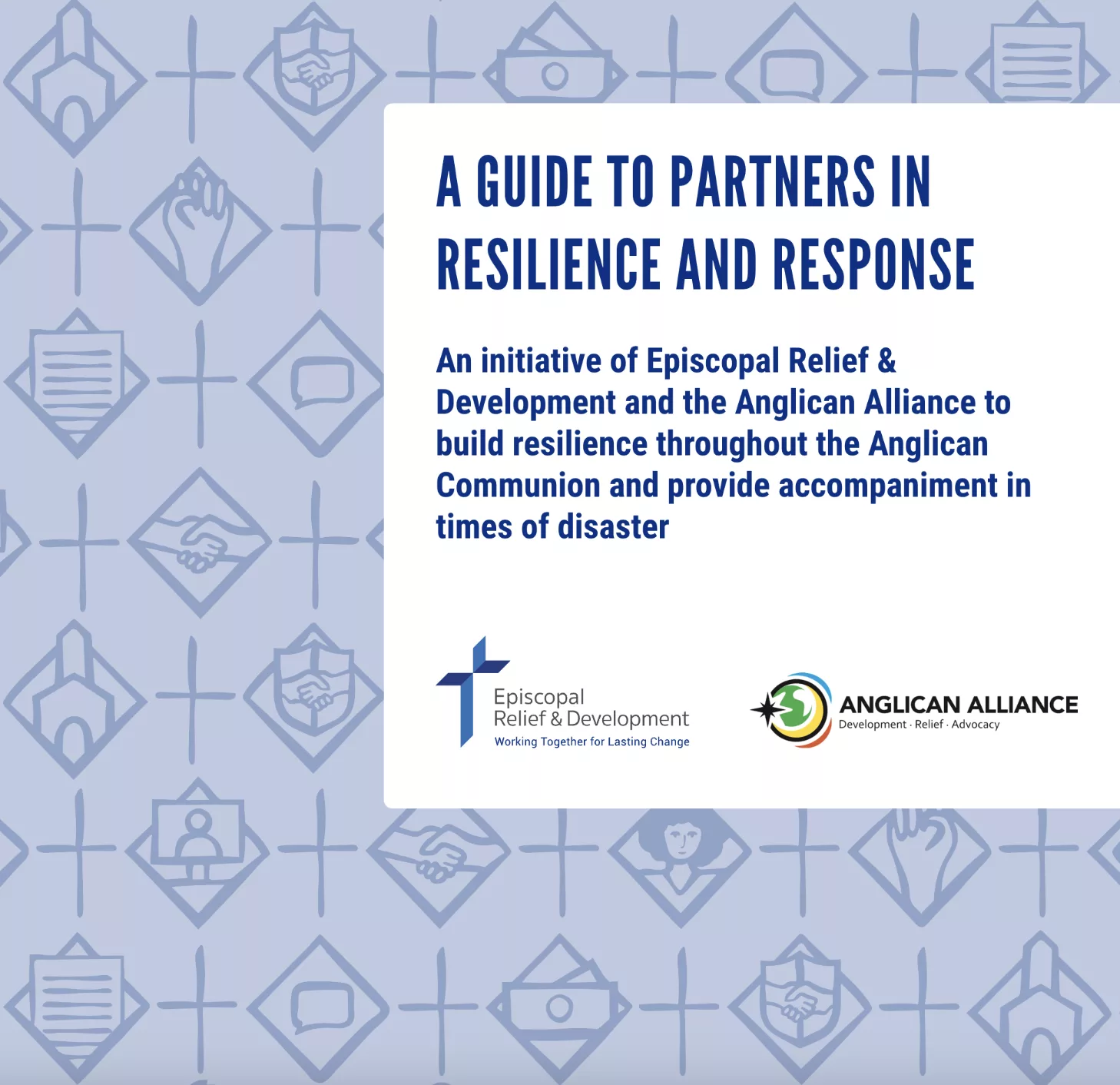Partners in Resilience and Response
Partners in Resilience and Response (PiRR) is an Anglican initiative to help churches build their resilience and capacity for disaster preparation and response. It also offers a mechanism to provide accompaniment to local churches in times of disaster, when their capacity is overwhelmed. It has been developed by a global group of practitioners using experience and learning from every part of the Anglican Communion.
On this page:
- What is PiRR?
- PiRR Programme Components and Strategy
- Theological underpinning
- How did PiRR come about?
What is Partners in Resilience and Response?
Always and everywhere, people have been impacted by disasters of different kinds and magnitudes: from pandemics, earthquakes and volcanic eruptions to increasingly frequent climate-related events such as extreme storms, flooding and droughts.
We cannot prevent such disasters, but we can increase our capacity to survive and come through them. We can learn practical disaster response skills – what to do when a disaster strikes our community. We can also build our communities’ ability to identify hazards, assess risks, anticipate threats, prepare for potential disasters and absorb their impacts. In short, we can increase resilience.
Anglicans are integral parts of their communities. This means that when disasters strike, they are already there – and they will be there long after other agencies have left. They know their communities and understand the context. This makes Anglicans – and other faith actors – well placed to work with communities to build their resilience.
However, often the local church is overwhelmed by an emergency and not able to respond as effectively as it would like. Churches need to acquire the skills needed to prepare for and respond to the emergency situations they are increasingly likely to face as the climate crisis deepens.
Seeing all this, Anglican partners came together to develop Partners in Resilience and Response. PiRR is based on, and builds on, the experiences and learning of churches from every part of the Anglican Communion that have actively engaged in disaster affected areas to support the most vulnerable as they prepare for, and recover from, disasters both in the short and long term.
Learners from the Resilience Course are invited to form or join regional Communities of Practice to continue to share their experiences as they apply their learning.
While the Resilience Course is the main tool for building the capacity of churches for disaster resilience and preparedness, PiRR envisions cases that will require deployment of an accompanier to help a church build its disaster preparedness. This could involve inviting a church to nominate leaders to a resilience course or encouraging PiRR learners to connect within church structures or network with other agencies.
The PiRR programme has a Global Steering Group and Regional PiRR Teams of Accompaniers, managed by Regional Steering Groups. For more details on the mechanisms and logistics of accompaniment, please see the PiRR guide (link).

Photo: The global PiRR steering group at their consultation in 2022. Image: Anglican Alliance / Elizabeth Perry
Theological underpinning
Anglicans have long held a holistic understanding of what it means to be disciples of Jesus, who share in his ongoing mission. This understanding is expressed in the Anglican Five Marks of Mission, which are:
- To proclaim the Good News of the Kingdom
- To teach, baptise and nurture new believers
- To respond to human need by loving service
- To transform unjust structures of society, to challenge violence of every kind and pursue peace and reconciliation
- To strive to safeguard the integrity of creation, and sustain and renew the life of the earth
This holistic engagement with the world reflects Jesus’ mission to bring good news to the poor, release to the oppressed and abundant life for all [Luke 4:18 and John 10:10].
Two further Bible passages particularly underpin the thinking behind the initiative: 1 Corinthians 12 and Luke 24: 13-35.
One body, many parts
In 1 Corinthians chapter 12 we read about the Body of Christ:
For just as the body is one and has many members, and all the members of the body, though many, are one body, so it is with Christ. For in the one Spirit we were all baptised baptized into one body—Jews or Greeks, slaves or free—and we were all made to drink of one Spirit. (vv 12 and 13)
Verses 14 to 25 highlight the interdependent nature of the different parts of the body and verse 26 the mutuality:
If one member suffers, all suffer together with it; if one member is honoured honored, all rejoice together with it (v26)
Verses 27 to 30 repeat and emphasise how all are part of the body, but with different gifts and callings. These verses echo verses 4 to 7 of the same chapter:
Now there are varieties of gifts, but the same Spirit; and there are varieties of services, but the same Lord; and there are varieties of activities, but it is the same God who activates all of them in everyone. To each is given the manifestation of the Spirit for the common good (vv4-7)
Different parts of the Anglican Communion have different experiences, gifts and skills. Many parts have been through disasters and/or have skills in disaster recovery and building resilience. These are valuable assets, which can be shared for the common good of the whole body and with particular parts in times of suffering.
The road to Emmaus – a story of accompaniment
Inspired by Luke 24:13-35, we:
- Take the initiative to BE PRESENT with communities affected by disasters.
- Walk together, listen and learn from each other ways to better understand contexts and identify opportunities to develop effective actions.
- Acknowledge and share our resources and capacities.
- Establish safe spaces to share, to lament and to dream together: blessed are those who dare to dream, they might see them come true!
- Work with communities, praying and reading the Bible and our history to hope again: we hope against hopelessness.
- Develop strategies for hospitality that brings relief and a desire to go back to Jerusalem, to share with other communities what we have been receiving.
How did PiRR come about?
PiRR started with a vision for churches experiencing disasters to be offered accompaniment and support through visits and at a distance. This would be done regionally and through Global South to Global South exchanges.
A series of regional consultation conference calls was convened in mid-2017 with Anglican church and agency representatives from across the Communion. These calls were to gauge interest, assess experience and discern what added-value a PiRR initiative might provide.
There was overwhelming interest in such a mechanism and a desire that it should be locally driven. It was also clear that this same mechanism would be useful before an emergency to build capacities and resilience.
Following the good reception of the idea, a consultation meeting was facilitated in October 2018 in Sri Lanka. This was followed by a resilience building workshop in Papua New Guinea and pilot post-disaster deployments to Zimbabwe, South Sudan and the Bahamas.
From these experiences, the Resilience Course was developed and the first global roll out held in 2020/2021. Another consultation meeting was held in November 2022 in the Philippines to enhance and finalise the initiative.
PiRR programme components and strategy
The Partners in Resilience and Response initiative is designed to complement existing capacity and be flexible and tailored to the particular context and needs of the local church at that time. It is not designed to replace other existing relationships or mechanisms but to provide additional capacity support to local churches as needed.
To implement the capacity building envisioned by Partners in Resilience and Response, the programme has three key components: the Resilience Course, accompaniment and communities of practice.
The Resilience Course
 The Resilience Course is an online learning exchange to build the resilience of local churches and their communities to disasters.
The Resilience Course is an online learning exchange to build the resilience of local churches and their communities to disasters.
Find out all about it here: The Resilience Course
Accompaniment
Accompaniment involves deploying an experienced accompanier to help a local church in its resilience building and disaster response. An accompanier works alongside a local church to provide support in preparing for and/or responding to disasters.
Accompaniment can be in-person or remote, pre- or post-disaster, all depending on the local church situation and context. However, It is anticipated that accompaniment will mostly happen in post-disaster situations, as the Resilience Course (link) is the primary tool for resilience building.
The post-disaster accompaniment component of Partners in Resilience and Response recognises that local churches are often overwhelmed by emergencies and not always able to respond as strongly and effectively as they would like. In partnering with churches in the response phase of disasters, the programme can facilitate accompaniment, the deployment of an accompanier to support the church.
Accompaniment is always at the invitation of the local church, based on identified needs, required skill-sets and preferred engagement timeline (when and how long).
The local church should know that accompaniment through the PiRR initiative is available but should not feel pressured to use the mechanism if not appropriate or needed.
Communities of Practice
As the PiRR initiative grows, regional steering groups are being established in the different regions of the Anglican Communion. Regional steering groups have a number of functions, but a key one is mutual support and learning. Responding to disasters and building resilience is demanding work; supporting one another is a key way we can make the Body of Christ a tangible reality.
“If one part hurts, every other part is involved in the hurt, and in the healing. If one part flourishes, every other part enters into the exuberance” 1 Corinthians 12: 26 (The Message translation).

